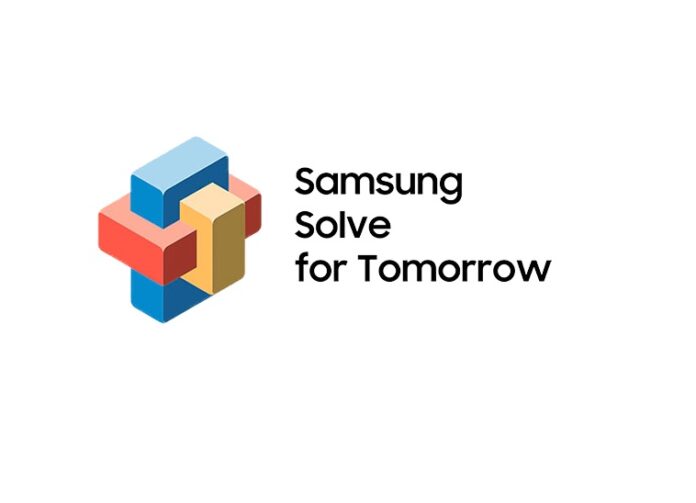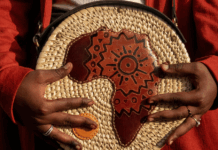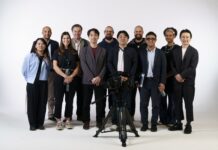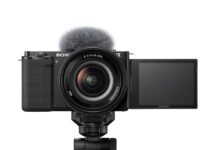Samsung in conjunction with the Department of Basic Education have announced the selection of the Top 20 schools in South Africa – celebrating their advancement to the next phase of the Samsung Solve for Tomorrow 2025 STEM competition.
The Samsung Solve for Tomorrow STEM competition which honours and recognises the innovative spirit of learners from quintile 1 – 4 public schools, aims to empower young people in grade 10 & 11 from underserved communities through education and skill enhancement, particularly focusing on Science, Technology, Engineering and Math (STEM). This year’s theme: “Infrastructure and Safety” – challenges learners to tackle pressing issues in their schools and respective communities.
The entries to this year’s competition closed at the end of March and from the applications submitted – the Top 20 schools were selected to participate in the next phase of the competition, with the help of assigned Samsung employee mentors. This year, the selected participants are tasked with addressing genuine community problems using STEM principles, thus improving their analytical abilities and gaining professional guidance from Samsung employees.
Launched for the first time in 2023 in South Africa, Samsung Solve for Tomorrow is a unique competition that encourages creative thinking, problem-solving skills and teamwork to nurture social innovative ideas that address local communities’ most pressing challenges. Since inception, the competition has been growing from strength to strength and this alone, is an affirmation of Samsung’s dedication to empowering the youth with the skills required to drive innovation and change.
Lefa Makgato, Corporate Social Responsibility Manager for Samsung Electronics in Southern Africa said: “Congratulations to the top 20 schools for advancing to the 2nd phase of the Solve for Tomorrow contest. We are incredibly impressed by the passion, creativity and innovative ideas demonstrated in their entries. Each submission has shown a deep commitment to addressing real-world challenges with fresh perspectives and practical solutions. At Samsung, we believe that the future is shaped by young minds and we are excited to see how their ideas will continue to inspire change and drive progress.
Makgato explained with excitement how Samsung is now looking forward to seeing the learners’ continued dedication in the next phase – where they will be expected to conduct research, develop paper prototypes and submit their solutions for evaluation.
In no particular order, below is a list of the Top 20 schools that have been selected:
And, with Samsung helping them with resources as well as mentors guiding them in phase two, the learners will need to conduct research, develop and submit their paper prototypes for the challenges they had identified in the preliminary phase. As part of this very crucial stage, the teams from the Top 20 schools for 2025 will now be taken to Design Thinking workshops to be held within their respective regions. Also, to help learners conduct their research and communicate with their mentors, the teams from the selected schools will be sponsored with a Samsung tablet as well as data.
At the Design Thinking workshops, learners will be taught invaluable skills on how to best approach and get the most out of their work, think critically, speak and act like designers as well as a cognitive and structured process for human-centred, creative problem-solving. Learners will also be encouraged to focus on building strong teams and will be trained on how to conduct research that can help transform their ideas from mere concepts to workable solutions that can address the identified issues within their communities.
At the end of this phase, the Top 20 Finalists will be expected to submit the paper prototypes of the solutions they have identified and the judges will evaluate to determine the top 10 schools to proceed to the final phase. The participating teams stand a chance to win exciting prizes and the recognition as South Africa’s next generation of innovators and problem-solvers.
In recognition of their efforts and brilliance, the participating schools have an opportunity to walk away with an overall, first prize of R100,000, the school that takes 2nd place will receive R50,000 and the school that will complete in third place will be awarded R30,000 in STEM equipment. Moreover, Samsung will yet again sweeten the deal by rewarding each of the learners in the top three teams with a Samsung device.
Makgato added: “These prizes combined with the principles of this competition are a clear indication of Samsung’s commitment to empowering the country’s youth and rewarding excellence. We would therefore like to encourage schools, learners and the broader community to follow the competition and support these schools that are not only participating in the competition but are also representing their respective communities.”
Article Provided


























